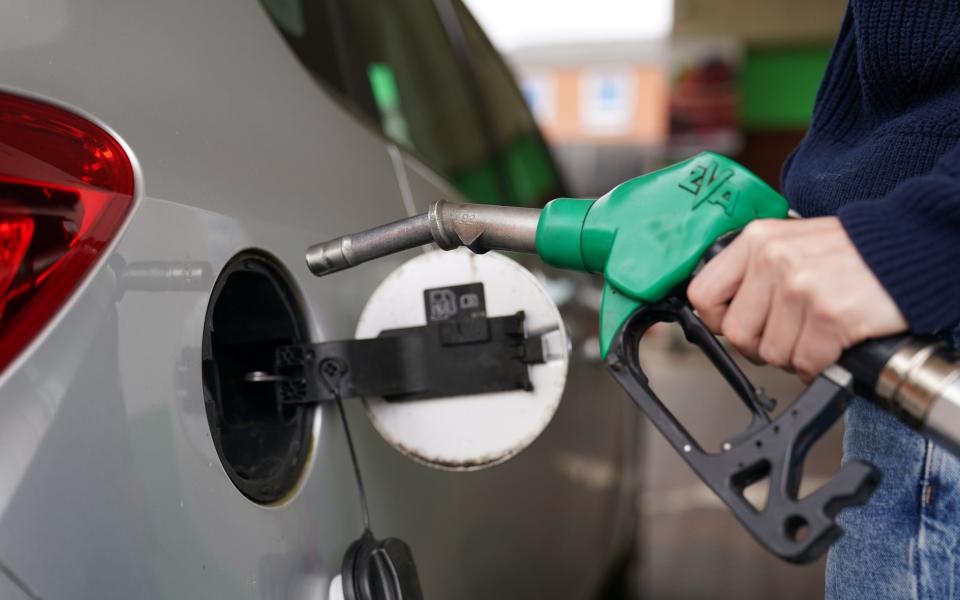Diesel drivers in Britain pay £11 more to fill up than in EU

British motorists are paying 20p more for a litre of diesel than drivers in the European Union – unless they are in Northern Ireland.
New figures from the RAC suggest the cost of filling a 55-litre family car in most of Britain is now £11 higher than on the Continent.
Overall, the UK has now been the most expensive place in Europe to buy diesel for seven weeks running, with an average cost per litre of 152p – or £83.60 to fill up.
Only drivers in Northern Ireland are being spared, with the average price of diesel there 10p less per litre than in the rest of the UK – despite being the same product.
The RAC warned British drivers were getting “an extremely poor deal” and accused forecourts and supermarkets of charging significantly more than the wholesale cost of fuel.

Simon Williams, the motoring group’s head of policy, suggested the main reason prices were lower in Northern Ireland was the smaller presence of the “Big Four” supermarkets: Tesco, Sainsbury’s, Asda and Morrisons.
While they run around one fifth of forecourts in the rest of the UK, the chains only operate 6pc of Northern Ireland’s outlets.
The RAC also said retailers were failing to pass on lower costs for petrol, which currently costs an average of 147p per litre.
Mr Williams added: “[Profit] margins are once again staying persistently high – and drivers are paying the price.
“Our data clearly shows that pump prices haven’t fallen in line with the reduction in wholesale prices, so drivers across the UK – with the exception of those in Northern Ireland where fairer prices are charged – are once again losing several pounds every time they fill up.
“There’s no good reason for retailers in Great Britain not cutting their prices at the pumps far further.
“We can only think they’re hoping no one will notice due to the distraction of the General Election.”

The cost of a litre of diesel in the UK is 8p more than the next-most expensive countries, Finland and Ireland, data collated by the RAC shows.
Despite being just across the English Channel, French drivers also pay 11p less per litre than their British counterparts.
The RAC said these cost differences could not just be explained by differences in international markets.
According to the motoring group, retailers have average profit margins of 14p per litre of petrol and 16p per litre of diesel.
That compares to long-term average margins of 8p for both fuels – meaning supermarkets and forecourts are now making double what they have historically made on diesel.
In 2019, before the coronavirus pandemic, the Big Four supermarkets were making a 3p margin per litre of petrol and 8p per litre of diesel.
The “persistent overcharging” at the pumps means it now costs an extra £3 to fill a typical family car with petrol and an extra £5.50 to fill one with diesel, analysis by the RAC found.
Mr Williams said the numbers underlined the need for the Government to roll out an online “Pumpwatch” scheme, which would boost competition by allowing drivers to easily compare prices and find the cheapest deals.
This has already been promised by ministers, along with a price monitoring body, after a 2022 report by the Competition and Markets Authority found that drivers had been overcharged £900m by retailers.
Mr Williams added: “Whichever party, or parties, form the next government, it’s essential they ensure the new Pumpwatch scheme, which became law just before the election, is set up as quickly as possible.”
Asda has in the past said it is “focused on providing our customers with the best value at the pumps”.
Morrisons has said it is “extremely competitive on fuel pricing and although margins have increased, they remain very low”.
Tesco has said it is “committed to providing customers with great value, competitively priced fuel and we regularly monitor fuel prices”.
Sainsbury’s chairman Martin Scicluna last year said: “To be very, very clear, we are not profiteering and we are not rip-off retailers.”

 Yahoo Finance
Yahoo Finance 